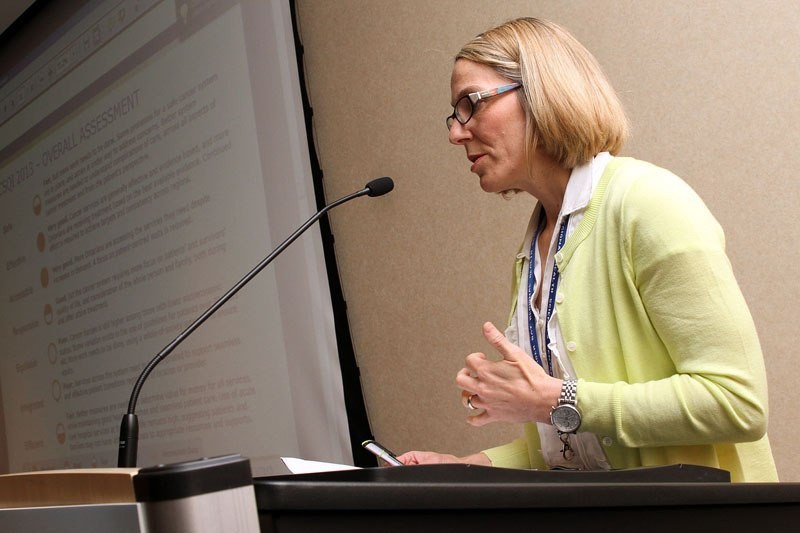Cancer prevention needs to be addressed on a societal level, says a high-ranking Thunder Bay Regional Research Institute official.
Mark Henderson, the hospital’s executive vice-president for chronic disease prevention and management, on Wednesday said once patients get into treatment in Northwestern Ontario, their survival rates are on par with the rest of the province.
Getting them into treatment is the biggest problem, Henderson said, after releasing the region’s annual Cancer System Quality Index figures.
The numbers show the region suffers a higher incidence of prostate, colon and rectum, and lung and bronchus cancers than the rest of Ontario.
But while 89 per cent of breast cancer patients survive five years after diagnosis, two percentage points better than the province as a whole, the same can’t be said for prostate and colon and rectum cancers, which see patients die at slightly higher rates than their fellow Ontarians.
“One of the problems we face in our particular Local Health Integration Network is we do not have a particularly healthy population,” Henderson said.
“What we need really is a call to action.”
The trouble is, said Joanne Lacourciere, director of the Regional Cancer Care Northwest program, not everyone is listening.
There has to be a willingness to make those lifestyle changes, like smoking cessation, a commitment to exercise and an improved diet. It won’t happen overnight.
“This is a huge issue to tackle. It’s like turning the Titanic away from the iceberg,” she said.
“If we’re really going to have an impact, we really need to have patients paying attention to their health.”
Of the 83 categories used to score the CSQI, the Northwest LHIN was graded in 79. In 24, improvements have been made since the last ranking. Twenty-one are more-or-less the same and 11 received a lower score. In 23 other categories insufficient data was available to provide a score.
Among the areas the Northwest’s scores dropped include chemotherapy wait times for both breast and colon cancer patients, though the latter still remains better than the provincial average.
People are also less satisfied with their family doctor’s knowledge of their cancer care, though again, the region fared better than the rest of Ontario.
The number of Stage 3 colon cancer patients who received chemotherapy within 60 days of surgery is up slightly, as is the percentage of patients who are consulted within two weeks of referral.
Lacourciere said the CSQI is a good opportunity for the cancer system to judge what it’s doing right, what it’s doing wrong, and make the necessary changes to make improvements all along.
“It’s the one opportunity that we have every year to reflect on our performance. It’s sometimes hard to know day-to-day how you’re doing and how you’re moving the yardstick ... making sure we’re putting our energy into the right areas of the cancer system to improve the overall quality.
The entire Northwest LHIN CSQI survey can be accessed here.
